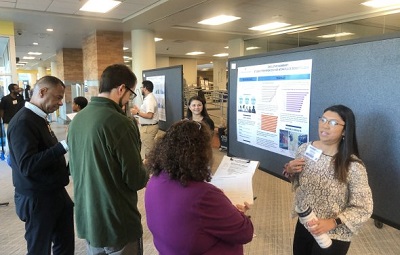Establishing Phylogeographic Relationships of Symbiodinium in Sites in Florida and Belize
Description/Abstract/Artist Statement
Keys, as well as fore-reef and back-reef locations in Belize. DNA was extracted and the chloroplast 23S gene was sequenced from the samples in order to identify Symbiodinium taxonomy. All samples were most closely related to subclades A4 and A13, which were identical at the CP23S locus. A phylogenetic network was generated to show similarities and differences among experimental samples and established subclade samples taken from Genbank. The phylogenetic network as well as statistical analysis showed differences between the Florida and Belize samples, as well as differences between inshore vs. offshore and fore-reef vs. back-reef samples.
Presentation Type
Event
Disciplines
Biology
Location
Learning Commons @ Perry Library, Conference Room 1310
Start Date
2-13-2016 10:15 AM
End Date
2-13-2016 11:15 AM
Upload File
wf_no
Establishing Phylogeographic Relationships of Symbiodinium in Sites in Florida and Belize
Learning Commons @ Perry Library, Conference Room 1310
Keys, as well as fore-reef and back-reef locations in Belize. DNA was extracted and the chloroplast 23S gene was sequenced from the samples in order to identify Symbiodinium taxonomy. All samples were most closely related to subclades A4 and A13, which were identical at the CP23S locus. A phylogenetic network was generated to show similarities and differences among experimental samples and established subclade samples taken from Genbank. The phylogenetic network as well as statistical analysis showed differences between the Florida and Belize samples, as well as differences between inshore vs. offshore and fore-reef vs. back-reef samples.



Comments
Faculty Mentor: Dr. Dan Barshis